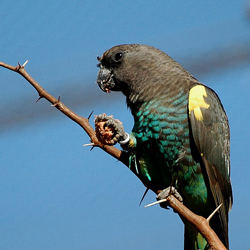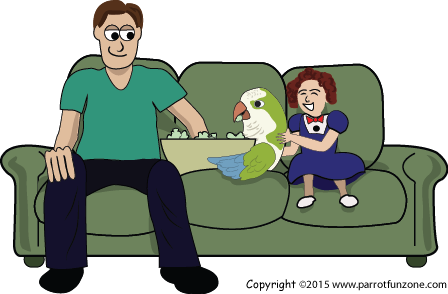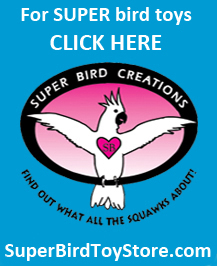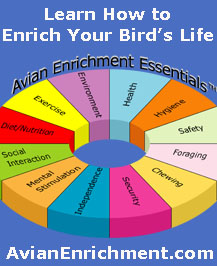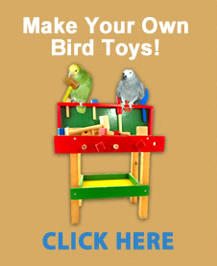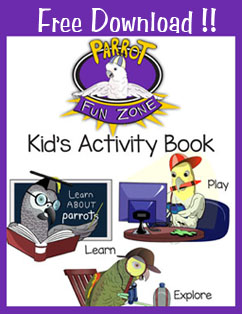Social Time
|
Parrots are flock animals with an innate need for companionship and social interaction. A parrot derives it's greatest sense of physical and emotional security from living within a flock. Parrots are rarely alone in the wild. The social nature of a flock is very important to a bird's emotional well-being. Flocks participate in many activities together such as eating, traveling, preening, bathing, climbing, playing, roosting, vocalizing and socializing. A bird left in isolation without love and attention will have a poorly developed sense of security or belonging. Parrots are social beings and isolation can lead to the development of negative behaviors, depression and even insanity. Being locked up and abandoned in a cage to spend hours alone does not make for a very rewarding life. Fortunately, our birds exceptional intelligence in combination with their innate social nature enables them to relate to their human family as their flock. Within our homes we need to take an active role in meeting our birds need for social connectedness. You can help your bird feel as though he is part of your flock by:
How much attention is too much? What type of attention is best? There are three levels of attention that you should integrate into your daily routine: Quality One on One Time (recommended 10-15 minutes twice a day) - This is where your undivided attention is focused on your bird without competing distractions. This time is great for training, cuddling and playing with your bird. Engaging in interactive play such as playing simple games with your bird will help to not only stimulate their bird brains but also foster a healthier relationship. Favorite games in our house are peek-a-boo, ball toss, hide and seek and “gonna get a bird”. Shared Attention (recommended minimum 20 - 30 minutes a day) - This occurs any time you spend while in physical contact or close proximity to your bird while you are also engaged in other activities such as watching TV, talking on the phone, washing dishes, interacting with other family members, taking a shower, etc. Indirect Attention (recommended minimum 2 hours per day) - Parrots love to observe other flock members and their daily routines while quietly amusing themselves with a toy on their T-stand. Just taking a few minutes to talk or hand out a treat will help remind your bird he is an integral part of the family. Parrots also have the need for social connection thru vocalizations and contact calls. Sometimes all your parrot wants is a reassuring call back from whatever room you are in. Simple hello and goodbye greetings also fall in the category. |
Related Articles
 Security
Security
 Mental Stimulation
Mental Stimulation
 Play Time
Play Time
 Why Does My Bird Bite?
Why Does My Bird Bite?







































